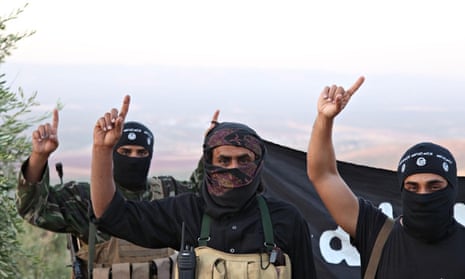A British charity group has given Muslims an opportunity to participate in a social media campaign declaring that the brutal actions of Isis are “#NotInMyName”. Its intentions are good, but does this latest attempt to encourage Muslims living in western countries to dissociate themselves from Isis entrench the opposite view? Really, the campaign says that Muslims are somehow responsible for the atrocities taking place in Iraq and must speak out against them to prove otherwise.
No one can deny that video footage of journalists being beheaded by Isis operatives and ongoing news of vicious massacres are extremely distressing, eliciting a raw emotional response, requiring us to take action. But why should a whole community be compelled to apologise for or distance themselves from despicable actions they have no part in?
After all, we don’t hold this expectation for citizens who practice other religions. As George Megalogenis aptly tweeted:
We don't ask Oz Catholics to condemn child abuse when church has caused harm. Why hold law-abiding Oz Muslims to a higher standard? #qanda
— George Megalogenis (@GMegalogenis) September 22, 2014
Expecting constant apologies implies two things: that Muslims, of which there are over 1 billion worldwide, are a generally homogenous group; and that we are not truly accepted as part of western society.
As a Muslim living in Australia, I can understand the instinctive compulsion to sign up to this defensive campaign to reassure the world at large that Isis does not represent Islam, nor my views. We can often feel pressured to vindicate and protect ourselves against the racist attacks being hurled at the Muslim community at the moment, as well as a lingering fear of persecution and Islamophobia.
However, our actions may well be misguided and distracting. We instead need to ask the difficult questions: would Isis exist today without the devastation of the Iraq War, the more than a decade of crippling Western sanctions on Iraq that killed half a million children, or before that, the West’s unflinching support of the dictator Saddam Hussein?
At a time when, above all, calm heads and hearts should prevail to devise strategies that address the root causes of such brutal conflicts, we seem to be focussing on just the symptoms. Unfortunately, the #NotInMyName campaign diverts attention from the underlying causes that have led to the current situation.
The latest display of divisive tactics and language are perpetuating a culture of fear, and are a clear warning sign of how low we are really sinking, and how much the debate needs to be changed.
Mike Baird, the New South Wales premier, has said he wants to “hunt down” Islamic threats. Newspaper headlines proclaim that we must “blow them to hell”. Even if the recent anti-terrorism raids were justified, the political theatre that came along with it was certainly not.
There is a deep hypocrisy in the current situation of Australia and its international allies purporting to fight Isis to protect Arabs and Muslims in the Middle East, while at the same time facilitating the denigration of them in Australia. And if we seriously care about protecting ourselves, do we think using 800 police to charge one person is more or less likely to radicalise a community?
We should be flipping the terms of the debate from exacerbating war and division to bringing peace and unity, including eliminating injustice and discrimination, providing equal and fair economic and social development, environmental sustainability, and respect for human rights. Leadership and courage at this time is about embracing the complexity of such terrible situations, not just focussing on the symptoms of historical blunders.
In some ways, getting involved in #NotInMyName is a case of “damned if you do, damned if you don’t”. If Muslims choose not to participate in campaigns like this, we may be attacked for not calling out Isis.
But if we do take part, it creates an expectation that it will be done for every atrocity committed by someone who happens to be Muslim. Of course another hashtag, #MuslimApologies, has also emerged to parody the whole situation.
A better “not in my name” collective campaign would be directed at stopping Tony Abbott from dividing our multicultural community, forcing the prime minister to think deeply about the effectiveness and potential consequences of his actions in the face of Isis extremist brutality. I would be the first to sign up.
